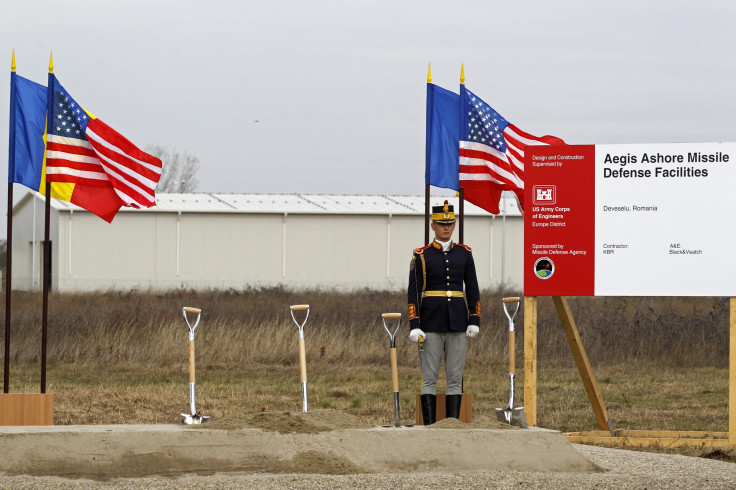US Missile Shield In Romania Switched On, Kremlin Calls It ‘Threat To Russia’s Security’

A U.S. missile shield in Romania, which the West sees as vital to protecting Europe from potential ballistic missile threats, becomes operational Thursday. The move, however, has angered Russia, which called it a threat to the country’s security.
The $800 million missile defense system, stationed at the remote Deveselu air base in Romania, is capable of fending off missile threats from countries like Iran that Washington believes could be a cause of serious concern for major European cities. While U.S. officials said the Romanian missile shield was not aimed at Russia, the Kremlin has expressed concerns over the establishment, and said the government had taken measures to ensure the nations’ safety.
“This is a direct threat to us,” Admiral Vladimir Komoyedov, chairman of the State Duma’s defense committee, reportedly told the Interfax news agency. “They are moving to the firing line. This is not just 100; it's 200, 300, 1,000 percent aimed against us. This is not about Iran, but about Russia with its nuclear capabilities.”
The missile shield uses its radars to detect a ballistic missile launched into space while its sensors help measure the missile’s trajectory to destroy it in space before it re-enters the earth’s atmosphere.
Russia, which is furious over its Cold War rival having an advanced military system in formerly communist-ruled eastern Europe, claimed that NATO was trying to encircle it close to the Black Sea, a strategically important region that hosts a Russian naval fleet, Reuters reported.
“It is part of the military and political containment of Russia,” Andrey Kelin, a senior Russian Foreign Ministry official, reportedly said Thursday, adding that the move by the U.S.-led alliance will further deteriorate ties between Moscow and Washington.
The U.S., however, said that Russia should not be threatened by the missile shield, which will be handed over to NATO control in July. According to Douglas Lute, the U.S. envoy to NATO, the missile defense system is not aimed at anything that could be “perceived as potentially destabilizing.”
Meanwhile, Romanian President Klaus Iohannis said that his county wanted NATO to have a “permanent naval presence” in the Black Sea, and called for increased for NATO members in the region, which borders Russia and the Middle East, the Associated Press (AP) reported.
“It is important that a credible and predictable presence can be assured of the Allied forces on the eastern flank, to balance the northern dimension with the southern and eastern flank,” AP quoted Iohannis as saying, after meeting NATO Secretary General Jens Stoltenberg in Bucharest.
© Copyright IBTimes 2025. All rights reserved.






















